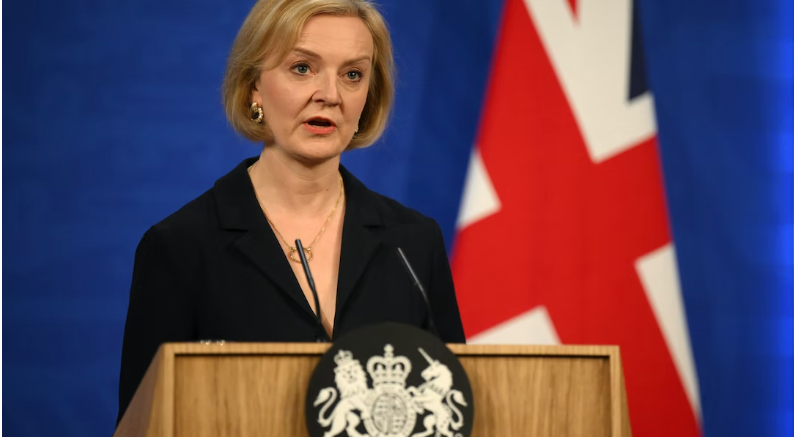
British Prime Minister Liz Truss may be ousted six weeks into her tenure after she and fellow ministers caved on most portions of an aggressive economic reform package.
Truss, who replaced outgoing head of government and fellow Conservative Party member Boris Johnson last month, unveiled a tax cut and energy production plan in the first days of her premiership. After investors concerned about the government’s ability to meet debt obligations jettisoned their assets, Truss announced that she would eliminate portions of her plan and dismissed finance minister Kwasi Kwarteng.
“We need to act now to reassure the markets of our fiscal discipline,” she said in a statement. “I have therefore decided to keep the increase in corporation tax that was planned by the previous government.”
Beyond canceling the higher corporate tax rate, Truss had planned to slash the basic income tax rate to 19% and launch discussions about special economic zones across the country.
Truss had formerly doubled down on her growth agenda during a number of local radio interviews that followed the market headwinds. “I understand that families are struggling with their fuel bills, and we had to take urgent action to get our economy growing, get Britain moving, and also deal with inflation,” she explained. “And of course, that means taking controversial and difficult decisions. But I’m prepared to do that as prime minister, because what’s important to me is that we get our economy moving.”










